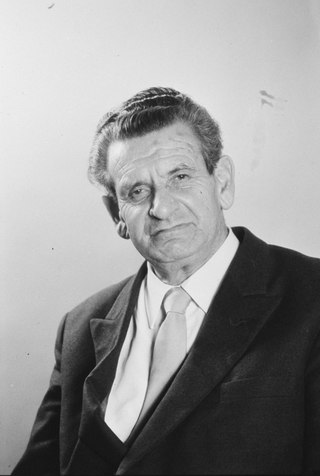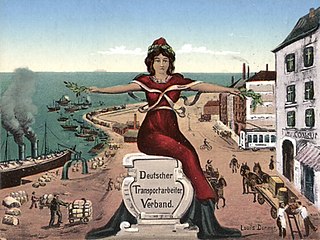Related Research Articles

The Irish Transport and General Workers Union (ITGWU) was a trade union representing workers, initially mainly labourers, in Ireland.

The Factory Workers' Union of Germany was a trade union in Germany.

The Royal College of Podiatry (RCPod) is the professional association and trade union for registered chiropodists and podiatrists in the United Kingdom.

The Federated Ironworkers' Association of Australia (FIA) was an Australian trade union which existed between 1911 and 1991. It represented labourers and semi-skilled workers employed in the steel industry and ironworking, and later also the chemical industry.
The General Commission of German Trade Unions was an umbrella body for German trade unions during the German Empire, from the end of the Anti-Socialist Laws in 1890 up to 1919. In 1919, a successor organisation was named the Allgemeiner Deutscher Gewerkschaftsbund, and then in 1949, the current Deutscher Gewerkschaftsbund was formed.
The Amalgamated Society of Textile Workers and Kindred Trades (ASTWKT) was a trade union representing textile workers, principally silk manufacturing, in the United Kingdom.

The National Union of Cokemen and By-product Workers was a trade union representing workers involved in turning coal into coke at collieries in Great Britain.
The Amalgamated Union of Co-operative Employees (AUCE) was a trade union representing retail and related staff of co-operative businesses in the United Kingdom.
The Lancashire Amalgamated Tape Sizers' Friendly Society was a trade union representing workers involved in the preparation of cotton in the Lancashire area of England.
The Civil Service Alliance was a trade union federation bringing together civil servants in the United Kingdom.
The Rochdale Card and Blowing Room Operatives' Association was a trade union representing cotton industry workers in the Rochdale area of Lancashire in England.
The Union of Railway Employees was a trade union representing railway workers in Austria.

Hans Düby was a Swiss trade unionist and politician.

The German Transport Workers' Union was a trade union representing transport workers in Germany.

The German Wood Workers' Union was a trade union representing carpenters, joiners, and related workers, in Germany.
Central Union of Roofers was a trade union representing roofers in Germany.
The United Union of German Railway Workers was a trade union representing railway workers in Germany.
The German Leather Workers' Union was a trade union representing workers involved in tanning and glovemaking.
The Central Union of Butchers and Kindred Trades of Germany was a trade union representing butchers and abattoir workers in Germany.
The Central Union of Potters was a trade union representing pottery workers in Germany.
References
- 1 2 Jochade, Hermann (1931). Einheitsverband der Eisenbahner Deutschlands. ADGB. pp. 423–424. Retrieved 1 June 2020.
- ↑ Mommsen, Wolfgang; Husung, Hans-Gerhard (2017). The Development of Trade Unionism in Great Britain and Germany, 1880-1914. Taylor & Francis. p. 348. ISBN 1351815253.